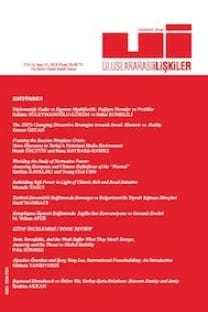Soykırım Suçu ve Devletin Sorumluluğu: Uluslararası Adalet Divanı'nın Bosna-Hersek v. Sırbistan-Karadağ Kararı
Soykırım, suçlar hiyerarşisinin doruğunda, suçların suçu olarak nitelendirilen bir eylem ve hukuk ihlalidir. Esasen uluslararası hukukun çerçevesi içerisinde değerlendirilen suç, zamanla ulusal hukukun da düzenlemeleri kapsamına girmiştir. Hem soykırım kavramı hem de soykırım suçu, büyük oranda, II. Dünya Savaşı sırasında gerçekleştirilen kırımların yarattığı dehşetin etkisiyle oluşturulmuştur. Soykırım suçu konusundaki temel hukuksal düzenleme ise 9 Aralık 1948 tarihinde kabul edilen ve 12 Ocak 1951 tarihinde yürürlüğe giren BM Soykırım Suçunun Önlenmesi ve Cezalandırılması Sözleşmesi’dir. Sözleşme, suçun önlenmesi ve cezalandırılması konusunda aslolarak devletleri yükümlü kılmıştır. Uluslararası ceza mahkemelerinin, bireysel cezai sorumluluk ilkesi ile sınırlandırıldıkları düşünüldüğünde. Sözleşme’nin uygulanması konusundaki yükümlülüğün devletlere getirilmesi, Sözleşme’nin ihlali halinde devletin sorumluluğunun doğmasına neden olmaktadır. Kavramsal ve hukuksal bir çerçeve ışığında, Soykırım Sözleşmesi’nin devletlere getirdiği yükümlülükleri, ihlal halinde doğabilecek sorumlulukları ve UAD’nin konuya dair çarpıcı kararını ele alan çalışma, soykırım suçu ve devletin sorumluluğu konusunun, pozitif hukuk metinlerindeki ve uluslararası içtihattaki yerini ve durumunu tartışacaktır.
Anahtar Kelimeler:
Uluslararası suçlar, soykırım suçu, devlet sorumluluğu, Uluslararası Adalet Divanı, Dava.
Crime of Genocide and State Responsibility: Judgment of the International Court of Justice on Bosnia-Herzegovina v. Serbia-Montenegro Case
Genocide, as an act and a violation of law, place at the top of the hierarchy of crimes and is qualified as crime of crimes. Essentially, being evaluated within the frame of international law, this crime gradually has been come within the scope of the national law. Either the conception or the crime of genocide was composed because of the massacres executed during the WWII, mainly. The basic legal arrangement about the crime was passed at 9 December 1948 and come into effect at 12 January 1951 named United Nations Convention on the Prevention and Punishment of the Crime of Genocide. Convention is obliged the states on the prevention and the punishment of the crime of genocide. Since international criminal courts/tribunals are restricted by the principle of individual criminal responsibility and the Convention incurs the obligation on states, the violation of the Convention causes the responsibility of states. This article, under the light of the conceptional and legal frame, discusses the obligations and responsibilities incur by the Convention and the dramatic judgment of the ICJ, in short, the place and situation of crime of genocide and state responsibility at the legal texts and international jurisprudences
Keywords:
International Crimes, Crime of Genocide, State Responsibility, International Court of Justice, the Case.,
- ISSN: 1304-7310
- Başlangıç: 2004
- Yayıncı: Uluslararası İlişkiler Konseyi Derneği İktisadi İşletmesi
Sayıdaki Diğer Makaleler
Türkiye Kamuoyu ve Avrupa Birliği 2001-2008: Beklentiler, İstekler ve Korkular
Erica MARAT, Lale Devrimi: Bir Yıl Sonra Kırgızistan
Homeros'dan Hobbes ve Ötesine: "Güvenlik" Kavramının Avrupa Geleneğindeki Boyutları
Vamık D. VOLKAN, Kimlik Adına Öldürmek: Kanlı Çatışmalar Üzerine Bir İnceleme
Balkan Savaşı Öncesi Karadağ'ın Arnavutluğa Doğru Genişleme Politikası ve 1912 Yaz Seferi
Çınar ÖZEN, Yelda DEMİRAĞ, Ahmet TETİK
Homeros'dan Hobbes ve Ötesine: "Güvenlik" Kavramının Avrupa Geleneğindeki Boyutları
Bosna-Hersek Savaşı ve Türk Parlamento Görüşmeleri (1992-1995): İnşacı Bir Yaklaşım
